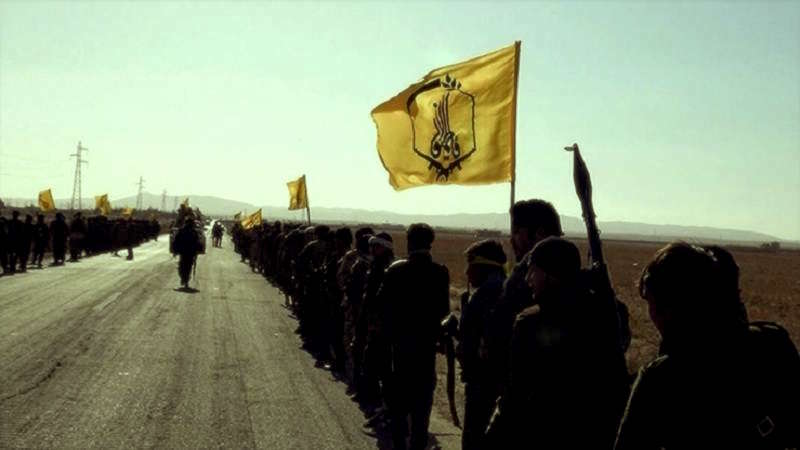
That the United States launched 59 missiles targeting an Assad military base in Syria after the chemical attack on Khan Sheikhoun remains a chance for eradicating militants’ sphere of influence across Syria. In other words, decreasing Assad’s power on the ground increases an onset for a serious political solution for the Syrian conflict.
This article, however, doesn’t endorse or oppose a US airstrike against Syria. It is an attempt to understand its scope in relation to militancy. It is worth to note this is not the first American airstrike on Syrian territory. As of 13 April 2017, the US has conducted 15,530 strikes in Iraq and Syria (7,869 in Iraq; 7,661 in Syria), according to the US Department of Defense. The only difference this time is that the target has changed – the regime.
Militants As Protectors
It remains uncertain if the US is going to carry out further attacks against regime power bases. But one fact starkly stands palpable in the horizon if this happens: Militant groups would lose their legitimacy as protectors of the people from regime’s atrocities. If they lose this claim, their power will significantly decrease.
On the one hand, while the regime has been systematically destroying Syrian material, moral and human capitals, militant Jihadists had a golden opportunity to establish a defensive and administrative order in great parts of the country. On the other hand, while civilians have been greatly affected by regime brutality, they seemed to welcome any group that claims their protection, as it is not a good time for people being constantly shelled to be picky about their allies. Therefore, the need of protection has emerged among affected people in Syria, making them incubators of “protectors” of all kind. This need for protective power has seemingly placed everyone under an umbrella of militancy in the face of a common enemy.
Should this enemy degenerate, so should the claim of defense. Thus, popularity of extremist jihadist groups as “protectors of the downtrodden” necessarily fades. Especially that most civilians are suffering exactly on an equal scale under Islamist extremists as they did under the Syrian regime, especially from corruption and lack of security.
But this is one side of the coin.
Power of Regime’s Sectarian Fighters
The Assad regime is far from being secular, as it has heavily relied on militia and foreign fighters from Iran, Iraq and Afghanistan. Over half the combat power of forces supporting the regime of Bashar Assad are foreign.
Due to the regime’s lack of manpower, it has been importing sectarian fighters to preserve control of “government” over large areas in Syria.
A series of targeted airstrikes should not only curb the power of sectarian fighters, but also outflank them, which consequently decreases risks posed by them on national security of western countries, especially that of the US.
The regime, as weak as it might be, is still offering organizational services to sectarian fighters. While organization is key to achieve collective action, diminishing regime’s power necessarily means breaking the organizational structure holding these sectarian fighters together. Outflanking sectarian fighters should ease ideological polarization in place.
Perhaps, it is time to turn this equation upside down.
New Solutions?
If we suppose that Assad regime didn’t carry out the chemical attack on Khan Sheikhoun, which is something the Americans claim to have a proof for, the American airstrike can foster positive results for the people in Syria, if the US continues to launch further ones to diminish the power of the regime. This is more likely to correlate with the decrease of regime airstrikes and its allies against their opponents.
Decreasing regime airstrikes and military power leads to two immediate significant outcomes: a) Peaceful skies that pave the way for more Syrian refugees to return home, b) Breakdown of market demand for more fighters. After all, most of male Syrian nationals are refugees because of regime’s compulsory military service tactics. All males are forced to do compulsory military service and nowadays, conscription means to fight on a battlefront. As it appears many Syrians, supporters of the regime and opposition alike, don’t feel like to do so.
Decreasing power of the regime, which – as mentioned above – decreases the influence of militancy on all sides, creates a new space of openness for civilians on all levels. Thus, changing power balance on the ground unlocks the obscurantist dead-end the Syrian conflict has reached.
One threat lingers still: Further airstrikes might put Russian and American troops in direct combat against each other. This is, however, not that much likely to happen because there is evidence that American and Russian troops are cooperating in the North of Syria (Manbij). Should a direct combat between Russians and Americans escalate, it is more likely that the civilians are the first ones to pay the price.
Now should this airstrike be a one time thing, it is more likely to remain insignificant in terms of making a difference in the Syrian case.

